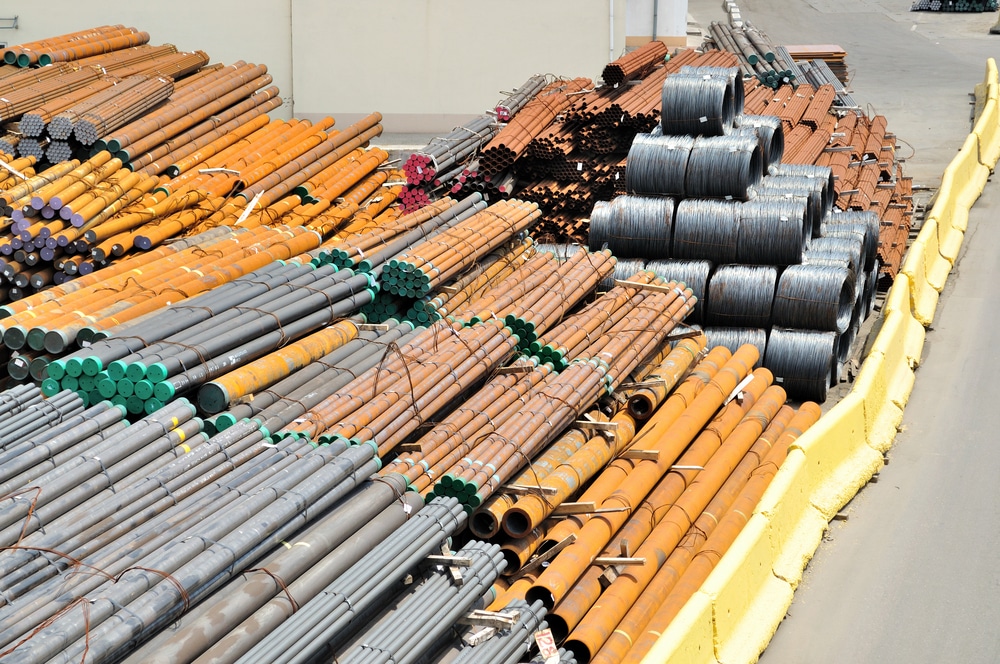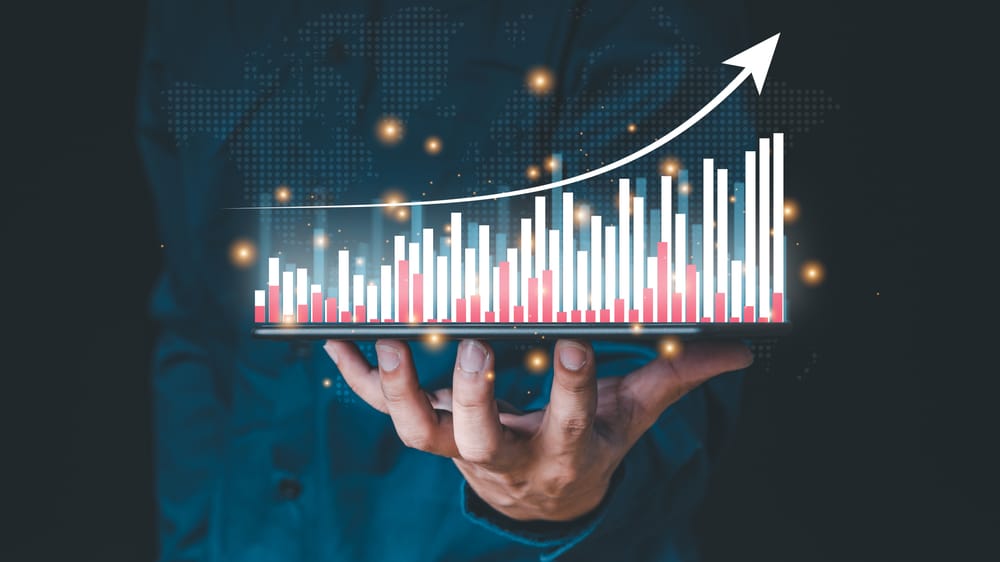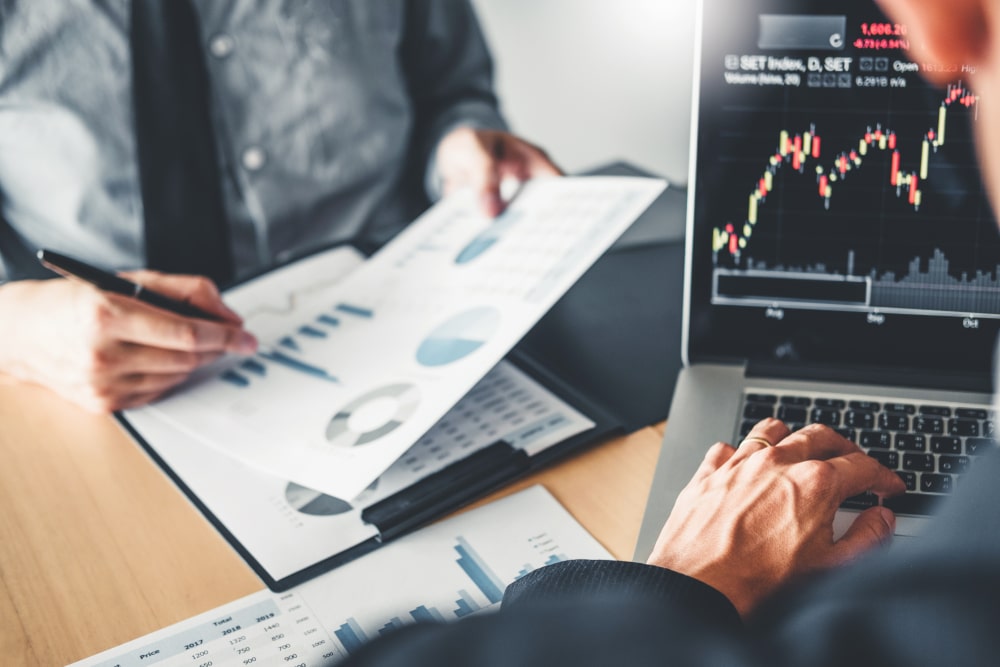Jasmine Birtles
Your money-making expert. Financial journalist, TV and radio personality.

Even if you are only a casual investor you will likely have heard of people who invest in commodities. The word ‘commodities’ immediately brings to mind Wall Street bankers urgently making trades in steel, corn and pork bellies in front of huge computer screens.
However, the truth is far simpler. A commodity is a raw material that can be bought and sold, and this provides ample opportunities for investors to profit.
A commodity can range from something like oil, to something more niche like copper or sugar. Even a precious metal like gold, silver or platinum qualify as commodities.
There are many ways to gain access to commodities even for relatively inexperienced investors, and these will be detailed later. We don’t advise buying them directly as that’s really for the most knowledgeable investors, but you can get your hands on commodities now, before their prices rise any more, through funds, ETFs and stocks and shares. Here’s how and why you could invest in commodities.

Commodities are the raw materials that underlie a huge range of manufacturing and business processes.
They are often described as the building blocks of the world economy and are used to make the myriad of products we are used to seeing on our shelves every day.
The difference between a commodity and another product or material is usually defined as them being entirely interchangeable from each other.
This means that two units of a commodity are the same no matter where they come from. A litre of oil extracted in Saudi Arabia is identical to a litre of oil extracted in Russia or Canada, for example.
This makes them attractive for investors looking to make solid returns.
Commodities are roughly split between
Some of the most popular commodities chosen by retail investors are
However, buying oil is not as straightforward as buying other types of commodity as you cannot simply buy a barrel. Instead you would have to consider alternative ways to invest as detailed below.

Commodity prices are driven by several global factors.
The most important is demand – the amount of interest there is around the world for the particular material.
This can be driven by many things, including, but not limited to, changing consumer trends, the general health of the economy and the growth of middle classes in the developing world – who may develop an increased taste for a certain product.
The other side of the coin is supply. When there is a limited supply of a certain material, for whatever reason, the price is bound to increase – as long as demand remains high.
Commodity prices are also affected by currency movements. Most are priced in US dollars, meaning changes in the strength of that currency will affect the price of commodities around the world.
The other major factor pushing prices up and down is action by governments or certain geopolitical events. For example, earlier in 2021 an attack on oil facilities in Saudi Arabia pushed the price of oil above $70 a barrel for the first time in more than a year.
Oil prices were also massively affected after the Covid-19 lockdown put an end to the vast majority of air travel, meaning demand for oil nosedived hurting the unit price.

The most straightforward way to invest in a commodity is simply to buy it and hold it until the price is sufficient for you to sell.
However, there are significant complications to this approach, depending on the resource itself.
The only type of commodity most investors would consider buying directly would be precious metals like gold and silver. These can be purchased in the form of coins or bars either direct from the Royal Mint itself or from dealers like Bullion Vault.
This is an attractive option for those looking to simplify the process as there is no third party involved. However, there are downsides and risks to consider.
Firstly commodities purchased directly will need to be stored. While this may not be too much of an issue for something like gold bars, although this will come with costs like insurance, if the chosen commodity is livestock or agricultural this becomes far more of an issue for any ordinary investor.
Some commodities, like oil, cannot be purchased directly.
There are other downsides. For example, commodities are not always a particularly liquid investment. This means they can be difficult to sell quickly.
Far more accessible for the majority of investors would be to invest in ETFs, or exchange-traded funds, which have exposure to commodity markets, or the stocks of companies which own or work with raw materials.
The former would suit investors looking to have a broad and varied exposure to different types of commodities. ETFs are usually passive funds, meaning they are not directly managed by a fund manager and instead aim to replicate the performance of a certain market or sector.
ETFs are available that track a range of commodities, including gold, silver and corn.
For investors who are not bothered about actually owning the commodity in question ETFs can offer good exposure with greater flexibility.
The main cost involved will be in fees to the investment company that provides the fund itself and also to your individual investment platform.
Buying stocks in companies that directly work with commodities is another option. These can offer potentially higher returns than ETFs, however they are higher risk as your returns would depend entirely on the performance of an individual company rather than the entire sector.
Company stocks will also not necessarily follow the unit price of the specified commodity itself. There could be other factors that affect only the specific company, and damage its share price, rather than the wider market.
For example, a mining company that mines gold could see its share price fall even if the price of gold increased due to a mining accident or similar.
Those looking to take this option will need to open an account with an online stockbroker. You can find information and links to some of the main platforms (like AJ Bell, Interactive Investor and Charles Stanley) here.
After registering your personal details you can buy stocks or funds on the platform. The platform itself will charge a fee, usually somewhere between 0.25% and 0.45%, while there will also be an additional fee depending on the fund, while dealing in stocks often incurs an additional charge. It is worth comparing the cost of trading on a number of platforms to ensure you are getting the best deal.
An easy but undoubtedly risky way to trade in commodities is to use so-called “contracts for difference” (CFDs).
CFDs allow investors to profit from price movements of a commodity without actually owning the resource itself. Essentially the buyer places a bet on whether the price will go up or down and the contract stipulates that the seller must pay the buyer the difference.
The buyer never owns the underlying asset itself, and the return is based on the difference in price between when the trade is opened and when it is closed.
The benefits of CFDs are that there is no need to purchase the commodity itself, with the additional costs that come with it, and there are usually no transaction fees involved. Investors will instead pay the “spread” between the price when they buy and sell.
However, there are massive risks involved. In many ways, trading in CFDs is more akin to speculating than investing, and they are usually recommended for very experienced investors only.
Those wanting to take this approach can use a service like eToro. More information on the risks and how to make a trade is available here.

There are many upsides to investing in commodities as a retail investor, but you need to make sure you fully understand the risks.
Predicting the commodities of the future or the direction of prices is incredibly difficult as they are so vulnerable to freak and unforeseen events. That being said there are some factors you can look out for that may signal what could be the commodity of the next 10 or 15 years.
Consumer or industrial trends play a major role in what raw materials will soar in demand.
For example, one of the products likely to grow massively in popularity over the next decade is likely to be electric vehicles. In the UK the sale of new petrol and diesel cars will be banned from 2030, while other countries are also promoting the push to lower polluting vehicles.
According to Deloitte, most analysts are predicting global demand for lithium to double or triple by 2030 as a result, while electric vehicles contain as much as four times the amount of copper as their petrol counterparts.
This could mean those raw materials could become a good investment, however it is near impossible to come to a conclusion with any certainty.

Commodities are definitely a high risk, high reward investment. Anyone seeking to enter the space should ensure they fully understand the risks and proceed with caution.
That being said, there are opportunities for very healthy returns.
Tim Price of wealth managers Price Value Partners says, “Commodities haven’t been this cheap relative to US equities (for example) for 60 years. Given how much money central banks have pumped into the system since the beginning of the COVID crisis, the inflationary risks are quite clear: the only question is how much of them to own. Within our discretionary asset management business we have a roughly 40% allocation to commodities and real assets. Part of that is in the form of the monetary metals, gold and silver, and part in the form of the broader commodities complex, in the form of listed commodities businesses with little or no debt – but generating huge cash flows. I suspect we are at the beginning of a multi-year commodities bull market and we hate the idea of being in any way underweight the most compelling asset class in our investment universe.”
Nevertheless, commodity investing is unlikely to suit novice investors who would probably be better served looking at other asset classes, like investment funds or bonds.
However, for those who feel confident and have taken the time to properly analyse and understand the risks, commodities could be a good way to diversify an investment portfolio.
Investors should have a good understanding of supply-and-demand economics as well as historic and current price trends. CFDs should also be approached with extreme caution.
Disclaimer: MoneyMagpie is not a licensed financial advisor and therefore information found here including opinions, commentary, suggestions or strategies are for informational, entertainment or educational purposes only. This should not be considered as financial advice. Anyone thinking of investing should conduct their own due diligence.
